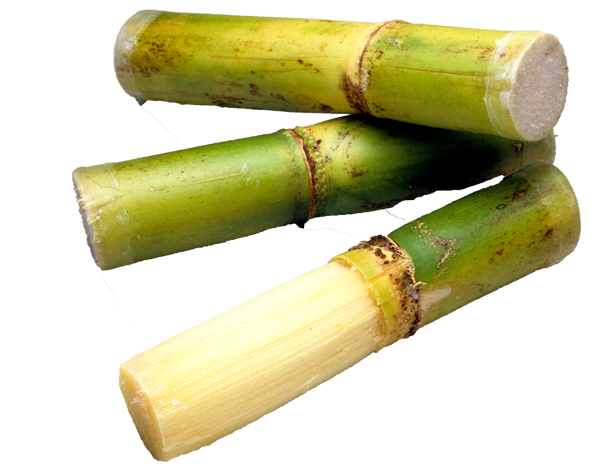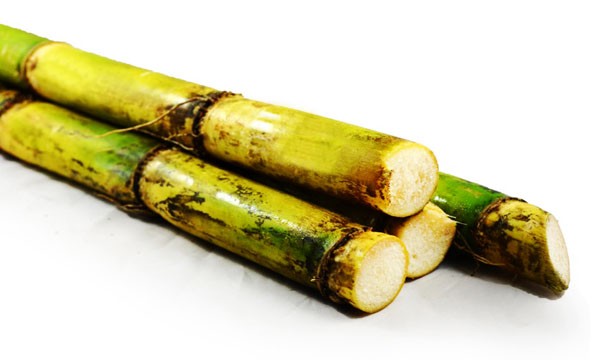Why Walking Stick Sugar Processing Chemicals Are Important for Modern Sugar Refining
The role of cane sugar handling chemicals in contemporary sugar refining can not be overemphasized, as they are indispensable to improving both the efficiency of removal and the overall high quality of the final item. Representatives such as phosphoric acid and certain flocculants are utilized to remove pollutants, causing sugar that not just meets consumer assumptions yet additionally complies with market standards. The ramifications of these chemicals expand past quality, touching upon market dynamics and environmental considerations. sugar and cane. This elevates vital concerns regarding the sustainability of such practices and their effect on the future of sugar manufacturing.
Function of Handling Chemicals
The efficiency of walking cane sugar processing pivots substantially on the critical application of processing chemicals. These chemicals play a critical duty in enhancing the performance and quality of sugar removal and refining. From the preliminary phases of juice removal to the final purification actions, handling chemicals promote numerous critical procedures.
In the extraction phase, chemicals such as phosphoric acid and calcium hydroxide are utilized to enhance the clarification process, assisting to get rid of contaminations and suspended solids from the cane juice. This not just boosts the yield however likewise ensures the quality of the end product. In addition, representatives like flocculants aid in the quick settling of pollutants, therefore simplifying the total process.
Turned on carbon and ion exchange materials offer to get rid of color and odor, guaranteeing that the polished sugar meets consumer top quality criteria. Hence, the precise selection and application of these chemicals are essential for achieving optimal end results in walking stick sugar handling.
Key Sorts Of Chemicals
Walking cane sugar handling counts on a range of essential chemicals that promote each phase of production. These chemicals play essential roles in clearing up, bleaching, and cleansing the sugar extracted from walking cane.
One main group of chemicals includes flocculants, such as polyacrylamide, which help in the explanation procedure by promoting the aggregation and settling of pollutants. In addition, calcium hydroxide is often utilized to neutralize level of acidity and aid in the removal of non-sugar parts.
Bleaching representatives, such as turned on carbon and sulfur dioxide, are used to decolorize the syrup, leading to a more clear last product. These chemicals help get rid of color compounds that may affect the sugar's appearance and marketability.
In addition, phosphoric acid offers as a pH regulator during the handling phases, ensuring optimal problems for the chemical tasks associated with sugar removal and purification.
Various other important representatives consist of edta (ethylenediaminetetraacetic acid), which chelates steel ions that could catalyze unwanted responses, and salt hydroxide, which assists in pH control throughout the refining process. Jointly, these chemicals improve efficiency and make sure a high-grade walking cane sugar item.
Advantages for Sugar High Quality
Commonly neglected, using particular handling chemicals considerably improves the total high quality of walking cane sugar. These chemicals play a crucial duty in refining processes, guaranteeing that the last product satisfies stringent sector requirements for pureness and preference.

Furthermore, processing chemicals aid in accomplishing a constant granulation and texture, which are important for consumer approval. By controlling the formation procedure, these chemicals ensure that the sugar crystals develop evenly, resulting in a more attractive item that dissolves well in various applications.
In addition, making use of these chemicals can boost the rack life of cane sugar by minimizing moisture absorption and microbial growth. On the whole, the critical application of processing chemicals is vital for supplying top notch walking cane sugar that meets customer expectations and industry needs.
Environmental Impact Factors To Consider

Additionally, the energy-intensive nature of sugar refining, worsened by chemical use, usually results in boosted carbon emissions. This contributes to environment change and elevates problems relating to the sustainability of present refining methods. In addition, the sourcing of these chemicals may involve techniques that threaten biodiversity, such as monoculture farming, which minimizes the strength of farming ecosystems.

To minimize these impacts, sugar refiners are increasingly checking out lasting choices and taking on best methods that reduce chemical usage. Applying Home Page rigorous environmental administration systems can help ensure that the refining procedure straightens with environmental criteria and advertises biodiversity. Eventually, a well balanced strategy that focuses on both sugar high quality and ecological stewardship is vital for the long-term feasibility of the sugar industry.
Future Fads in Refining
As the sugar market grapples with the ecological obstacles connected with traditional refining approaches, cutting-edge approaches are arising to improve both efficiency and sustainability. One considerable trend is the adoption of environment-friendly chemistry concepts, which prioritize the use of non-toxic, naturally degradable handling chemicals. This shift not just reduces ecological effect however also addresses consumer need for cleaner manufacturing approaches.
An additional appealing growth is the execution of innovative purification technologies, such as membrane separation and adsorption processes. These strategies improve the clarity and high quality of the sugar while lowering the quantity of wastewater created throughout refining. Additionally, the integration of digital technologies, consisting of IoT and AI, is transforming functional efficiency by allowing real-time surveillance and anticipating maintenance, therefore minimizing resource waste.
Additionally, using by-products from sugar refining, such as bagasse and molasses, is acquiring grip. These materials can be transformed right into biofuels or value-added products, contributing to a circular economic climate within the industry. Collectively, these fads signify a change in the direction of even more lasting methods that not only enhance functional performance however additionally straighten with worldwide sustainability goals, making sure the future stability of sugar refining.
Verdict
Cane sugar handling chemicals are necessary in modern-day sugar refining, substantially improving the performance and high quality of sugar extraction. The tactical use these chemicals not only enhances the pureness and taste of the end product however likewise guarantees consistent crystallization and texture. As the industry progressively prioritizes sustainability, the fostering of environmentally-friendly handling agents is most likely to shape future patterns in refining, ultimately leading look these up to greater quality products and prolonged life span for customers.

Inevitably, a balanced approach that prioritizes both use this link sugar top quality and environmental stewardship is crucial for the long-lasting viability of the sugar market.
Walking cane sugar handling chemicals are necessary in contemporary sugar refining, dramatically boosting the effectiveness and quality of sugar removal.